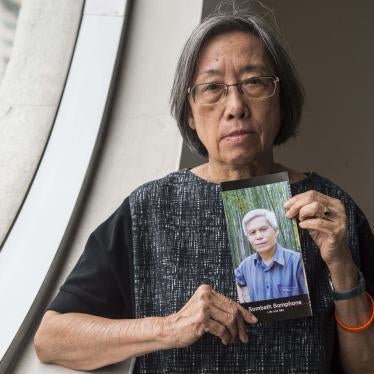North Korea’s brutal prison camp system and its practice of kidnapping foreigners will be featured at the 11th International Conference on North Korean Human Rights and Refugees on November 23, 2011, in Geneva, the Citizens’ Alliance for North Korean Human Rights, Conectas Direitos Humanos, and Human Rights Watch announced today. The conference is a unique opportunity to expose the appalling human rights situation in North Korea through the experiences of victims and family members, the three sponsoring groups said.
North Korea is by any measure one of the most closed and repressive countries in the world, the sponsors said. Despite international awareness and pressure, North Korea continuously refuses to engage with international human rights mechanisms.
Hye Sook Kim, a rare survivor of a political prison camp who was able to escape from North Korea, will share her story. She was interned at the age of 13 and spent the next 28 years in prison struggling to survive. She has described the life of the prisoners in the camp as being “worse than dogs’ lives.”
Detainees are forced to work in the mines in very dangerous conditions for 16 to 18 hours a day, are routinely beaten, and hardly receive enough food to survive. Kim escaped to South Korea after her release from the camp in 2001. She is committed to sharing her story with the international community in Geneva in the belief that silence is the best ally of the massive and systematic oppression faced by the people of North Korea, the sponsoring groups said.
Another speaker at the conference will be In Cheol Hwang. He has been seeking to learn the fate of his father, who was abducted when North Korean agents hijacked the airplane he was travelling on in December 1969. South Koreans abducted by the North Korean government since the 1950-53 Korean War also include hundreds of fishermen, students, teachers, and church ministers.
The North Korean government runs large forced labor camps where entire families of suspected offenders are imprisoned, often for life. The government periodically publicly executes citizens for stealing state property, hoarding food, and other “anti-socialist” crimes.
There is no organized political opposition, free media, functioning civil society, or religious freedom. Arbitrary arrest, detention, torture and ill-treatment of detainees, and lack of due process remain serious issues.
On September 8, the International Coalition to Stop Crimes Against Humanity in North Korea called for a United Nations Commission of Inquiry to investigate crimes against humanity in North Korea.








